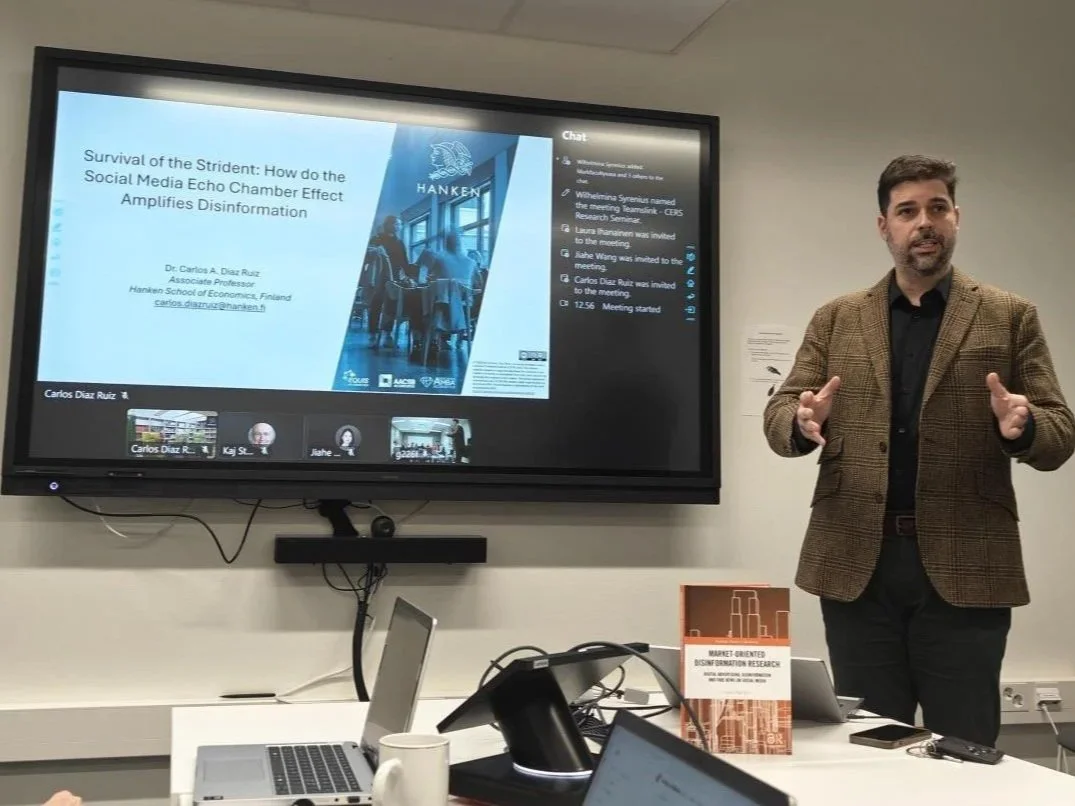Research seminar at CERS
“𝑴𝒂𝒓𝒌𝒆𝒕𝒆𝒓𝒔 𝒏𝒆𝒆𝒅 𝒕𝒐 𝒔𝒕𝒂𝒓𝒕 𝒕𝒂𝒌𝒊𝒏𝒈 𝒓𝒆𝒔𝒑𝒐𝒏𝒔𝒊𝒃𝒊𝒍𝒊𝒕𝒚 𝒇𝒐𝒓 𝒘𝒉𝒆𝒓𝒆 𝒕𝒉𝒆 𝒎𝒐𝒏𝒆𝒚 𝒂𝒏𝒅 𝒕𝒉𝒆 𝒂𝒅 𝒄𝒂𝒎𝒑𝒂𝒊𝒈𝒏 𝒆𝒏𝒅 𝒖𝒑.”
This became evident during my seminar presentation at CERS - Centre for Relationship Marketing and Service Management, at Hanken, where I shared insights from my book "Market-Oriented Disinformation Research." The presentation explained how disinformation is amplified and made profitable through the social media business model.
Currently, there are no regulations that hold marketers responsible for which pages their ads appear on. This is not only a threat to a brand’s reputation but also a way of monetizing the darker side of the internet. Disinformation is a serious threat today, and the field of marketing should rise to the challenge, as this issue directly contributes to an eight-hundred-billion-dollar industry.
💡 For more insights into the risks of disinformation and how the current business model fuels it, read the book here for free: https://doi.org/10.4324/9781003506676
